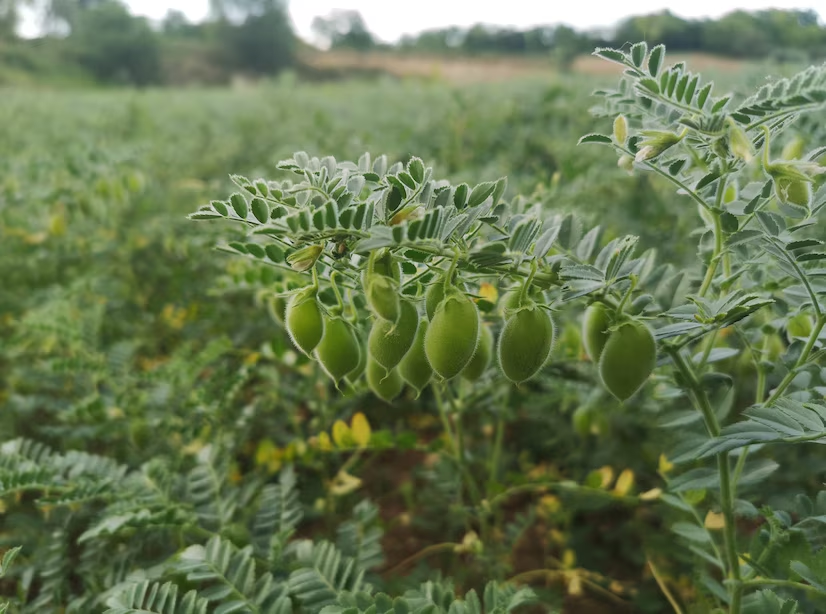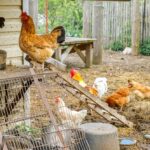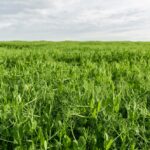As the demand for organic produce continues to rise globally, organic chickpea farming has emerged as an attractive and sustainable farming method. Chickpeas, known for their nutritional value and versatility in various cuisines, offer great potential for farmers seeking to diversify their crops while promoting environmental sustainability. Organic chickpea farming focuses on cultivating chickpeas without synthetic fertilizers, pesticides, or genetically modified organisms (GMOs), creating a more eco-friendly alternative to conventional farming.
In this article, we explore some of the key organic farming techniques for growing healthy, high-yielding chickpea crops.
1. Soil Preparation and Fertility Management
In organic chickpea farming, soil health is a fundamental factor for success. Since organic farming avoids the use of chemical fertilizers, farmers rely on natural practices to maintain and improve soil fertility. Here are some key practices for soil preparation:
- Crop Rotation: Chickpeas are legumes, meaning they can fix nitrogen in the soil. This makes them an excellent choice for crop rotation, particularly after nitrogen-depleting crops like cereals. Rotating chickpeas with crops like wheat or barley helps restore nitrogen levels and reduces the buildup of pests and diseases.
- Composting: Organic matter such as compost, manure, and crop residues can be used to improve soil structure and fertility. Well-composted organic materials are rich in essential nutrients and improve soil aeration, water retention, and microbial activity.
- Green Manure: Growing cover crops like clover or legumes (such as vetch) during the off-season can help enrich the soil with nitrogen and organic matter. These crops, when turned back into the soil, provide natural nutrients that benefit the chickpeas.
2. Organic Pest and Weed Control
Maintaining healthy plants in an organic setting involves managing pests and weeds without the use of synthetic chemicals. Below are some effective organic pest and weed management strategies:
- Integrated Pest Management (IPM): This approach involves monitoring pest populations, encouraging natural predators like ladybugs and birds, and using biological control methods such as neem oil or diatomaceous earth. Traps, row covers, and physical barriers can also help protect crops from pests.
- Mulching: Organic mulches, such as straw or grass clippings, can help suppress weed growth while retaining soil moisture and preventing erosion. Mulch also promotes the growth of beneficial soil organisms and improves soil structure.
- Crop Spacing and Companion Planting: Proper spacing between chickpea plants is essential to reduce competition for nutrients and water. Companion planting with aromatic herbs such as garlic, basil, or marigolds can help repel insect pests while promoting plant health.
3. Irrigation and Water Management
Efficient water use is crucial for organic chickpea farming, particularly in areas where water is scarce. Chickpeas are drought-tolerant, but they still require consistent moisture during their growing period, especially when the pods are forming. Here are some water management practices:
- Drip Irrigation: This system delivers water directly to the roots of the plants, minimizing water waste and reducing the risk of fungal diseases. Drip irrigation is an efficient and sustainable solution, especially for large-scale organic chickpea farms.
- Rainwater Harvesting: Collecting and storing rainwater is a cost-effective way to supply irrigation needs. Rainwater is often free of salts and chemicals that can build up in well or municipal water systems, making it ideal for organic farming.
- Water Conservation Techniques: Using organic mulch, improving soil organic matter, and maintaining healthy soil structures can enhance the soil’s ability to retain water, reducing the need for frequent irrigation.
4. Planting and Seed Selection
Selecting high-quality, disease-resistant seeds is a critical step in organic chickpea farming. Certified organic seeds are essential to ensure that no synthetic chemicals or GMOs are present. Farmers should also choose chickpea varieties suited to their local climate and soil conditions, as this can significantly impact yield and pest resistance.
- Seed Treatment: While chemical seed treatments are not allowed in organic farming, farmers can treat seeds with natural products like garlic or chili powder to prevent fungal or bacterial infections. Soaking seeds in warm water or using neem oil can also help control seed-borne diseases.
- Optimal Planting Time: Chickpeas grow best in temperate climates and should be planted after the last frost when soil temperatures reach 15–20°C. In areas with hot summers, it’s best to plant chickpeas early in the spring or during the cooler months to avoid heat stress.
5. Harvesting and Post-Harvest Handling
Harvesting chickpeas at the right time is key to ensuring high-quality yields. Chickpeas should be harvested when the pods are dry, and the seeds inside rattle. Delaying harvest can result in seed loss, while early harvesting can lead to underdeveloped seeds.
- Manual or Mechanical Harvesting: Organic chickpeas can be harvested manually or with mechanical harvesters, depending on farm size. Care must be taken to avoid damage to the plants and seeds.
- Post-Harvest Handling: After harvesting, chickpeas should be cleaned and dried thoroughly to prevent mold growth and ensure proper storage. Proper storage in a cool, dry, and well-ventilated space will preserve the quality of the seeds and prevent pest infestation.
6. Certification and Marketing
For farmers wishing to sell their chickpeas as certified organic, obtaining organic certification from an accredited body is essential. The certification process ensures that the farm adheres to strict organic standards, including soil management, pest control, and record-keeping.
Once certified, farmers can access niche markets that value organic products, potentially fetching higher prices for their crops. Organic chickpeas are sought after by consumers, food manufacturers, and health-conscious buyers.
Organic chickpea farming is a sustainable and rewarding approach that combines traditional farming wisdom with modern organic practices. By focusing on soil health, efficient water use, natural pest control, and crop rotation, farmers can cultivate high-quality chickpeas while minimizing their environmental footprint. As demand for organic products continues to rise, chickpeas represent a valuable crop that offers both economic and ecological benefits for farmers and consumers alike. With the right techniques, organic chickpea farming can contribute to a more sustainable and healthy food system.
Join 'Farmers Mag' WhatsApp Channel
Get the latest Farming news and tips delivered straight to your WhatsApp
CLICK HERE TO JOIN






